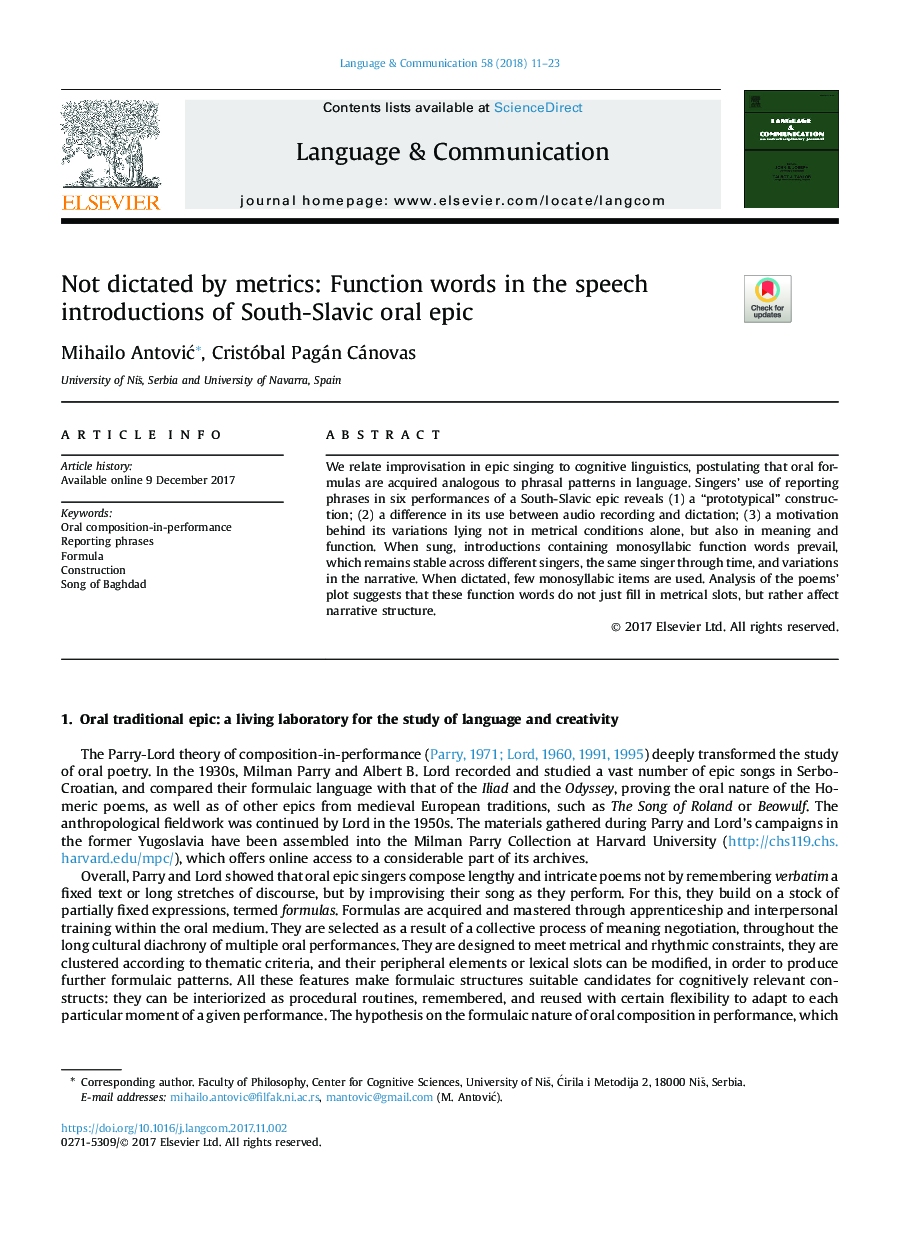| Article ID | Journal | Published Year | Pages | File Type |
|---|---|---|---|---|
| 7298275 | Language & Communication | 2018 | 13 Pages |
Abstract
We relate improvisation in epic singing to cognitive linguistics, postulating that oral formulas are acquired analogous to phrasal patterns in language. Singers' use of reporting phrases in six performances of a South-Slavic epic reveals (1) a “prototypical” construction; (2) a difference in its use between audio recording and dictation; (3) a motivation behind its variations lying not in metrical conditions alone, but also in meaning and function. When sung, introductions containing monosyllabic function words prevail, which remains stable across different singers, the same singer through time, and variations in the narrative. When dictated, few monosyllabic items are used. Analysis of the poems' plot suggests that these function words do not just fill in metrical slots, but rather affect narrative structure.
Keywords
Related Topics
Social Sciences and Humanities
Arts and Humanities
Language and Linguistics
Authors
Mihailo AntoviÄ, Cristóbal Pagán Cánovas,
